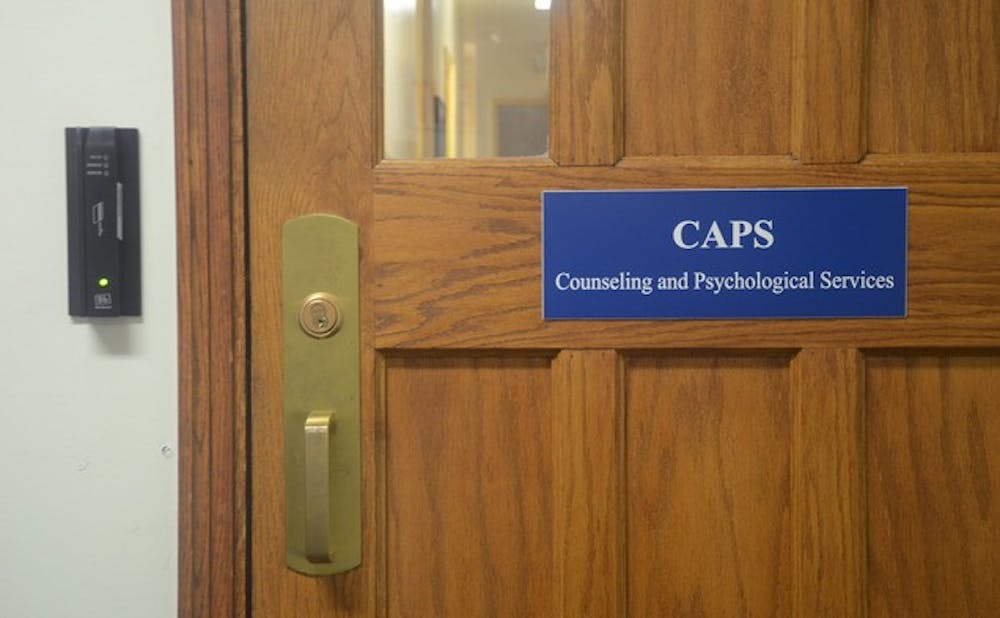For Mental Health Awareness Month, a number of Duke groups will spend February working to fight stigma around mental health and spark dialogue among students.
Duke Student Government has partnered with Counseling and Psychological Services and the Student Wellness Center to put together its first Mental Health Awareness Month. Efforts will focus on getting students to open up about their experiences and learn where they can receive help on campus.
“We not only want to bring attention to mental health and mental illness but, also, to provide the community with a sense that this is just life and this is student development,” said Gary Glass, associate director for outreach and developmental programming of CAPS. “We want to understand these issues in a more nuanced way.”
Programming will aim to open up dialogue through several different avenues. In the “What I Be” project, students will work with nationally-recognized photographer Steve Rosenfield to put together a campaign that allows them to address their insecurities through photographs. Broadway performer Joshua Rivedel will be putting on a one-man show about suicide prevention on Feb. 12, and CAPS is hosting a workshop on stress management.
Also among the highlights is a club fair at the Bryan Center Feb. 3, in which various student groups will have the opportunity to display what they offer in terms of mental health resources. The DSG equity and outreach committee has invited several different groups to host events throughout the month, including Peer for You, You’re Not Alone, the Center for Sexual and Gender Diversity and DUWELL.

“These groups wanted a larger platform to advertise what they’re doing,” said junior Keizra Mecklai, vice president of the equity and outreach committee. “We’re giving them an opportunity to showcase the resources they offer that are outside of what we explicitly know they do.”
CAPS played an important role in connecting DSG with other student organizations on campus to put together Mental Health Awareness Month, said freshman Jacqueline Monetta, a DSG senator for equity and outreach.
“[Stress and anxiety] is an issue that’s linked to high achievement and accomplishment, but it’s also associated with prolonged stress and psychological issues,” Glass said. “And DSG is such a foundational part of student leadership, so for that organization to be lending its voice to this issue just speaks volumes.”
One of the main goals of Mental Health Awareness Month is to examine the distinction between mental health and mental illness, as some subset of the population may struggle with illness but every student struggles with health, said Mecklai.
“There is a point when anybody can be debilitated by stress or depression or anxiety,” Mecklai said. “It has to be okay for people to think that it’s normal and for them to access resources even if they don’t think they’re suffering from mental illness.”
Issues that are less tangible—such as inequity due to gender and race on campus—also affect mental health, but are not as frequently discussed, Mecklai noted.
“We really want to take these feelings that students think they can’t talk about and try to tangibly make it an open conversation for them to have,” she said.
To close out Mental Health Awareness Month, a student-faculty panel on Feb. 26 will help to stimulate lasting conversation around mental health issues. The panel will consist of several students who suffer from mental illnesses such as bipolar disorder, anorexia and depression. Moderated by Duke faculty, they will speak about their experiences on campus.
“We’re really excited to have these students talking about their mental illnesses and open up to discussion,” Monetta said. “We want to show students that there shouldn't be a stigma around talking about mental health, and it’s not something to hide.”
Get The Chronicle straight to your inbox
Signup for our weekly newsletter. Cancel at any time.

